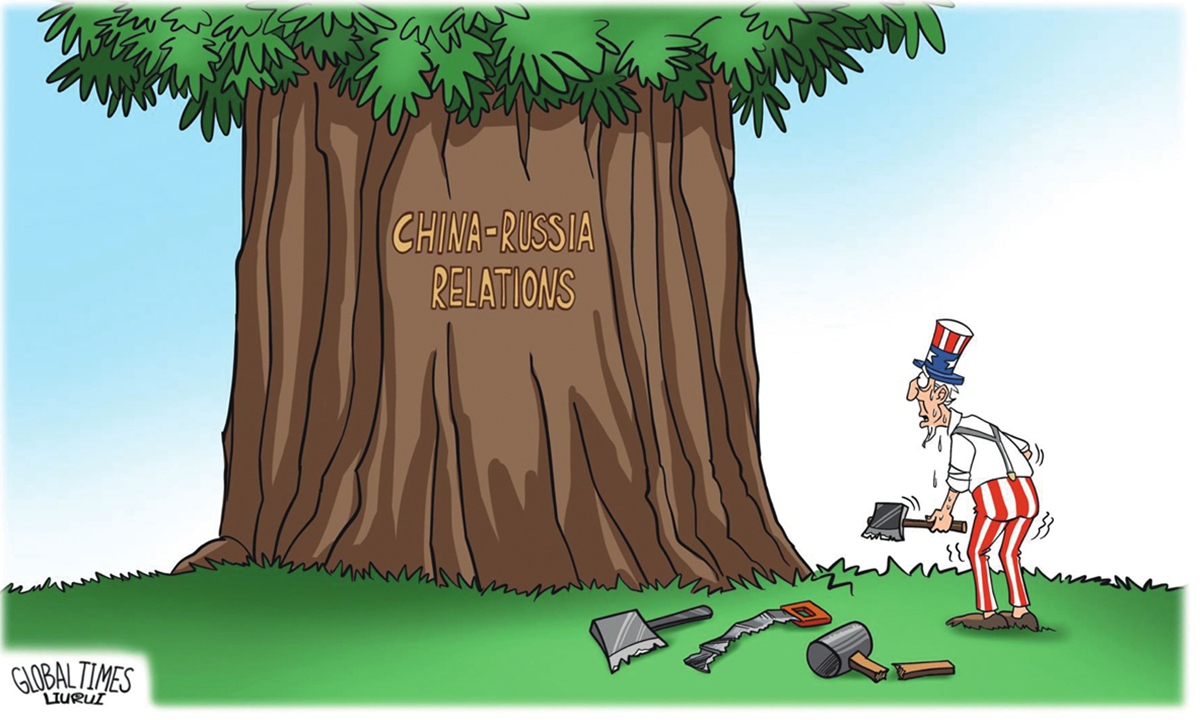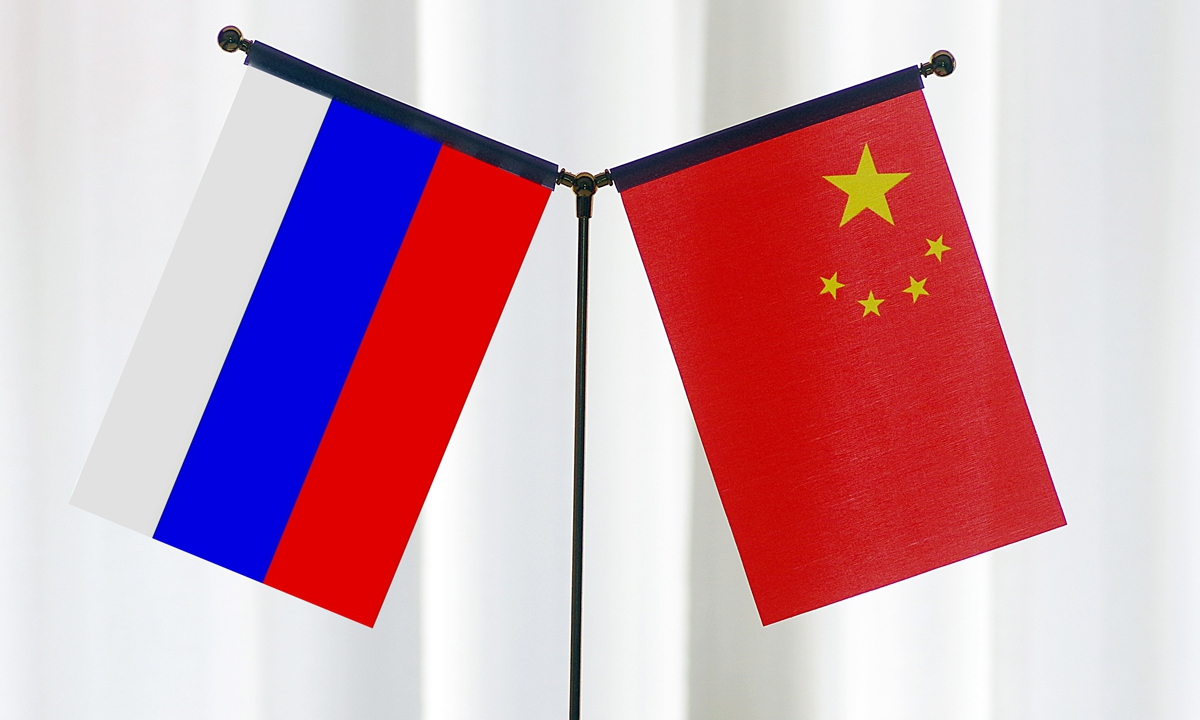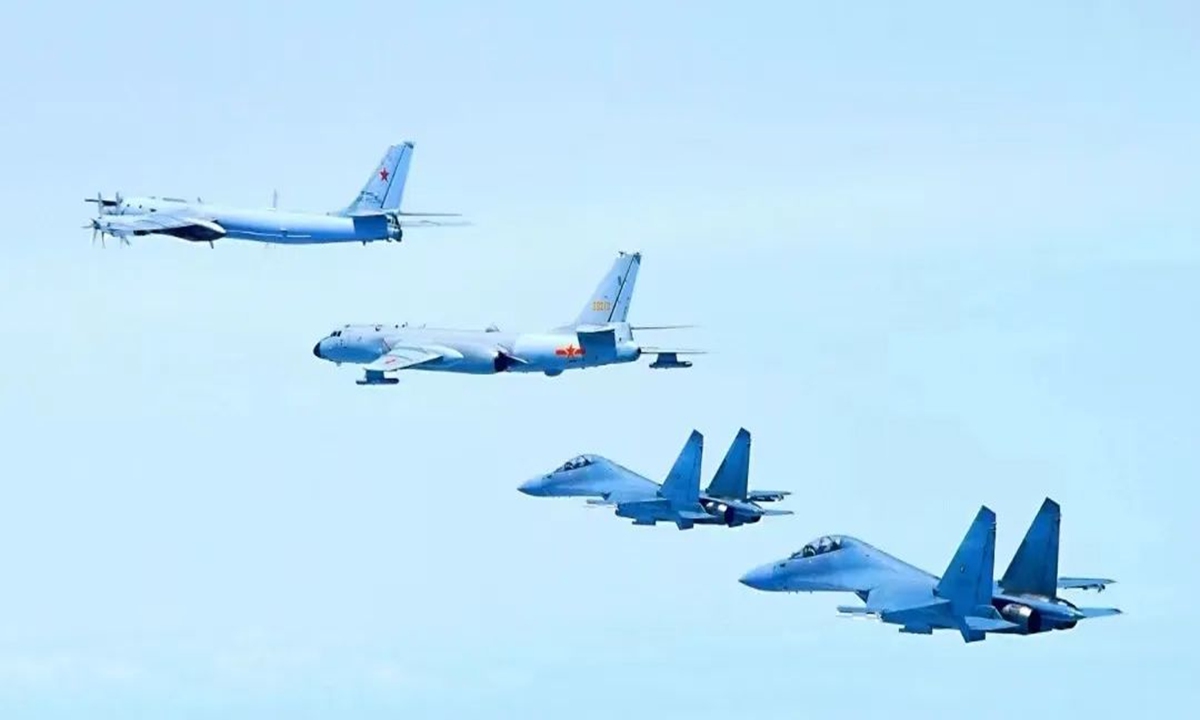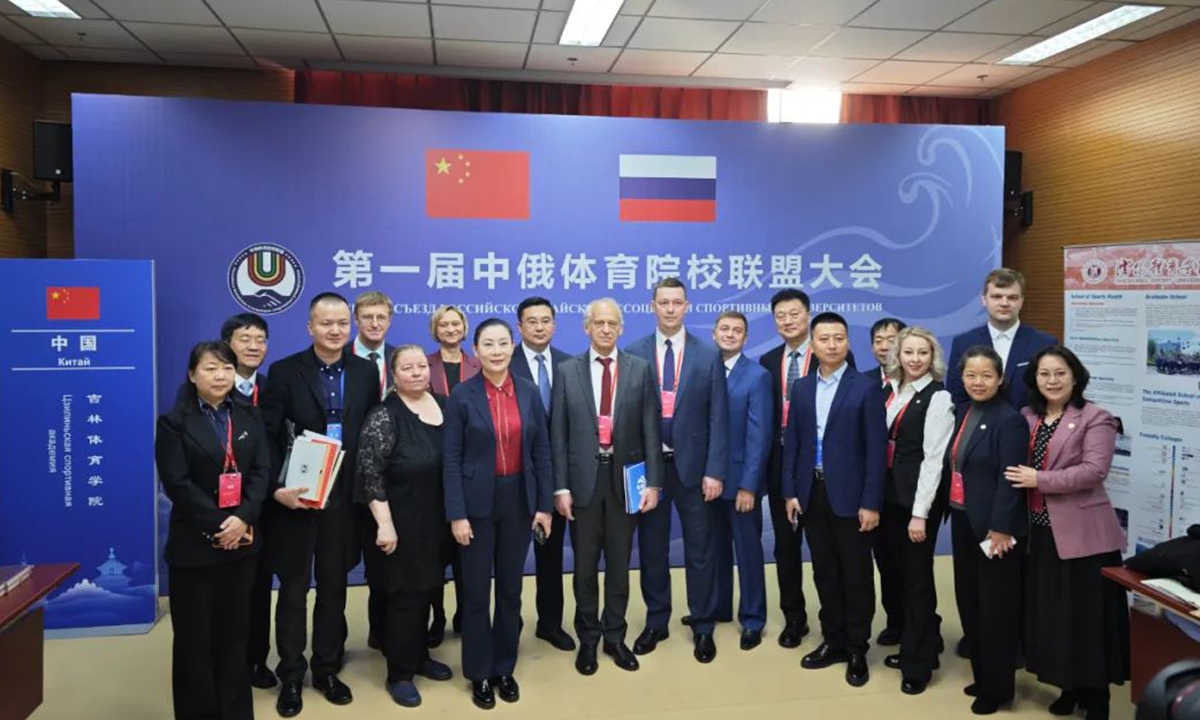
Illustration: Liu Xidan/GT
While the China-Russia relationship, especially their economic ties, has been seriously stigmatized and even targeted by the US and its Western allies, the growth potential of China-Russia trade has not been weakened but strengthened.Take bilateral energy cooperation as an example. As a representative aspect of China-Russia economic and trade cooperation, natural gas trade has been expanding rapidly, with Russian gas supplies to China via the Power of Siberia pipeline more than tripling from the 2020 level to 15.4 billion cubic meters (bcm) in 2022 and estimated to reach 38 bcm by 2025, Chinese newspaper Economic Daily reported on Saturday.
Moreover, statistics showed that Russia's supply of natural gas to China surged 46.6 percent year-on-year in the first three quarters of this year, with the daily supply already exceeding the contract volume, the report said, citing Russian gas company Gazprom.
Energy cooperation, represented by natural gas, is just one aspect of practical cooperation between China and Russia. During a period when the US and its Western allies are escalating sanctions against Russia, China-Russia bilateral energy trade has shown great potential for growth, and overall bilateral trade has frequently reached new highs, with expectations for strong growth momentum.
Aided by high-level political mutual trust, bilateral trade grew by 26.7 percent year-on-year in the first 11 months, reaching $218 billion, exceeding $200 billion for the first time, according to Chinese customs data. The total value marks a milestone for bilateral economic ties, as it means the two nations have achieved their $200 billion trade goal ahead of schedule. In 2019, they set a goal of increasing bilateral trade to $200 billion by 2024.
This is not only because the two countries have strong complementarities in fields such as energy, agricultural products and high-tech, but also because, under the current circumstances, their cooperation can provide more development opportunities for Chinese companies and bring an important market and supplies for Russia's economic development.
China and Russia have signed many agreements for agricultural and natural gas projects that could be extended for more than a decade, providing an important guarantee for the potential of bilateral cooperation.
As an important part of China-Russia strategic cooperation, their economic and trade relations have drawn wide attention from the outside world. In particular, after the Russia-Ukraine conflict, the increasingly close economic ties have become an increasingly apparent and clear target of Western public opinion, criticism and even punishment. For instance, a NATO official visiting Japan last week called for intervention in the so-called Chinese support for Russia, which a VOA Chinese article said pointed to the soaring trade between the two countries.
The US last week imposed sanctions on more than 250 individuals and entities, including in China, Turkey and the United Arab Emirates (UAE), in its latest attempt to target Russia's evasion of sanctions, according to media reports.
Yet, there is no way that unilateral sanctions and long-arm jurisdiction by the US can force others to follow its lead when it comes to trade with Russia. In addition to China, Turkey and the UAE, there are still many other countries engaged in trade with Russia, such as India, Brazil and South Africa. For instance, Russian exports to Brazil, which consist mostly of fertilizer and oil, are increasing, while Brazilian exports to Russia, mostly soybeans and beef, also rose in the first quarter of this year, according to media reports.
Judging by the impact of Western sanctions, Russia's trade with China and other countries has not diminished, but become closer. According to media reports, about 95 percent of trade exchanges between China and Russia are now settled in the yuan or the ruble, up from 50 percent in 2022. This development is sufficient to indicate that both countries have strong strategic autonomy, and their trade will by no means succumb to Washington's influence. Neither pressure nor stigmatization by the West can hinder the further development of China-Russia economic relations.



